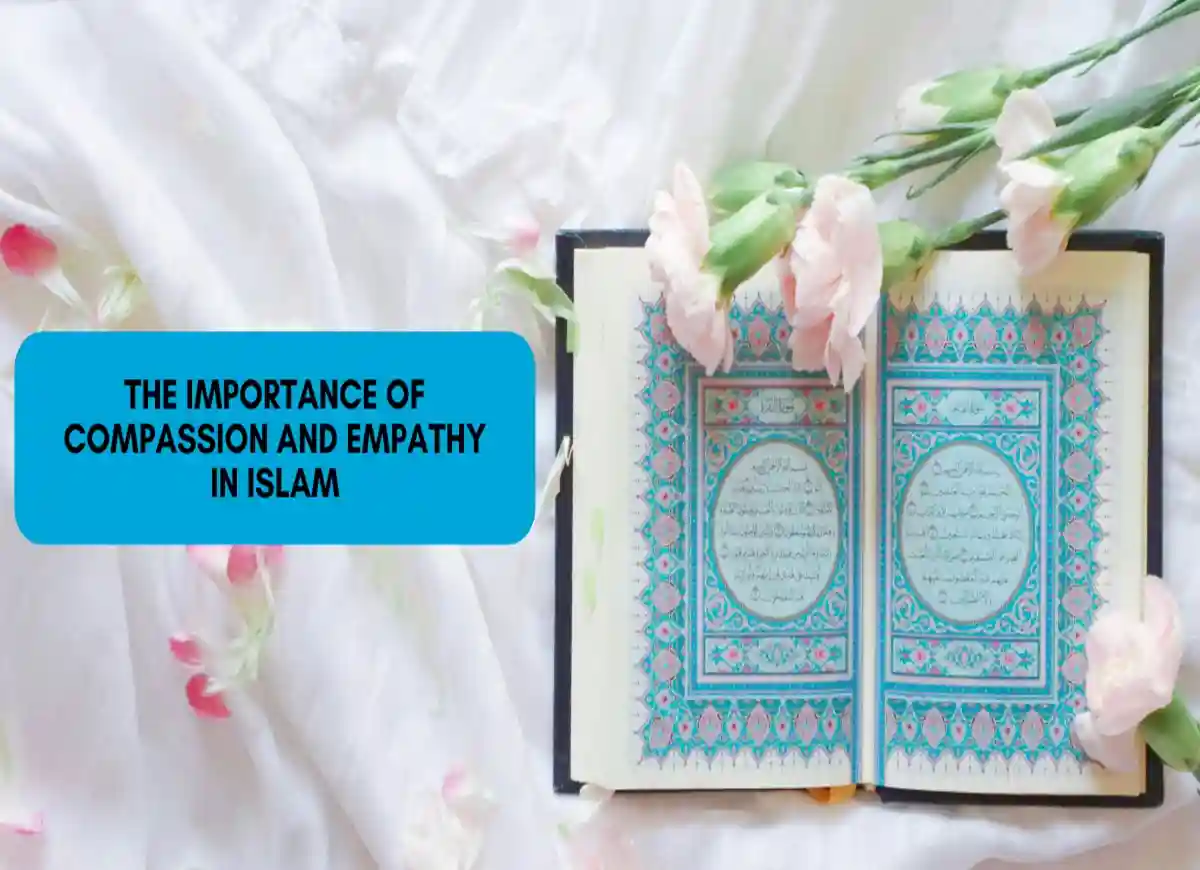Empathy in Islam, – Compassion and empathy are not merely commendable traits but the basis of Islamic teachings, embodying the deep-rooted essence of humanity Islam seeks to cultivate.
Beyond simple moral selections, these virtues are pivotal principles that steer Muslims through their daily interactions and comprehension of the world around them.
This article explores the profound significance of compassion and empathy within Islam, shedding light on how these values do more than enrich individual lives; they act as the glue that binds communities together, fostering an environment of mutual understanding and support.
By integrating the concept of zakat and a ‘zakat calculator,’ a tool designed to help Muslims fulfill their charitable obligations more effectively, we underscore the practical application of these virtues in adhering to one of Islam’s five pillars, thereby illustrating the tangible ways in which compassion and empathy manifest in the life of a believer.
Compassion: The Heart of Islamic Teachings
Compassion, or ‘Rahmah’ in Arabic, is a fundamental attribute of Allah, often described as “the Most Compassionate, the Most Merciful.”
This divine quality is a characteristic of God and a virtue that Muslims are encouraged to emulate in their own lives. The Quran, Islam’s holy book, is replete with verses highlighting the importance of compassion in reflecting divine mercy on earth.
Prophet Muhammad (peace be upon him), whose life is a model for Muslims, exemplified compassion in his actions and teachings. He showed kindness to children, care for people in need, and forgiveness to his enemies, teaching that compassion is not a sign of weakness but strength and faith.
Through his example, Muslims learn that to embody compassion is to see the world through love and mercy, extending a hand to those in need regardless of their background or beliefs.
Empathy: Understanding Beyond Ourselves
Empathy, or the ability to understand and share the feelings of another, is another cornerstone of Islamic ethics. Islam teaches that empathy is crucial for building strong, cohesive communities. It encourages believers to look beyond their own experiences and consider the perspectives and hardships of others.
The concept of empathy in Islam can be seen in Zakat (obligatory charity) and Sadaqah (voluntary charity). These practices are not merely about financial aid; they are expressions of empathy, a way to feel connected with the struggles of others and to act to alleviate them.
The Prophet Muhammad (peace be upon him) said, “None of you truly believes until he wishes for his brother what he wishes for himself.” This hadith underscores the importance of empathy, urging Muslims to consider the welfare of others as they would their own.
Compassion and Empathy in Action
In Islam, compassion and empathy are not abstract concepts but actionable virtues that manifest in everyday life. They guide how Muslims interact with family, friends, strangers, and the environment.
These principles encourage acts of kindness, whether helping an elderly neighbor, volunteering in community service, or speaking out against injustice.
Compassion and empathy also play a critical role in interfaith dialogue and social harmony. By fostering an understanding and respect for different perspectives, these virtues pave the way for peaceful coexistence and mutual respect among diverse communities.
Challenges and Opportunities
In today’s globalized world, where conflicts and misunderstandings often arise from a lack of empathy and compassion, the teachings of Islam on these virtues are more relevant than ever. Muslims are called upon to be ambassadors of compassion and kindness, demonstrating how these values can bridge divides and heal wounds through their actions.
However, embodying these virtues in adversity is not always easy. It requires patience, understanding, and a genuine desire to connect with others at a human level. It is a journey of constant learning and practice that ultimately leads to personal growth and societal progress.
Conclusion:
The importance of compassion and empathy in Islam cannot be overstated. These virtues are at the heart of Islamic teachings, reflecting a vision of the world where people are connected through bonds of kindness and understanding.
By living out these values, Muslims draw closer to the divine and contribute to a world where compassion and empathy are the cornerstones of human interactions. In doing so, they offer a powerful antidote to our times’ challenges, showing that we can create communities of care, respect, and mutual support through compassion and empathy.
Compassion and empathy are not just Islamic values but universal principles that have the power to transform the world.
As we navigate the complexities of modern life, let us draw on these timeless teachings to build a more compassionate and empathetic society for the benefit of all.
Categories: PRAYER (Salat), ALMS (Zakat), SAWN (Fasting) HAJJ (Pilgrimage) & DUA (Supplications), Hadith and Tafseer, The Holy Quran, Quran Jaz 1- 114
Topics: Ushr and Zakat, Hijab, Arabic Corner, Faith, Islamic History, Biography, Sirat ul Nabi PBUH, Islamic Studies, Halal & Haram








